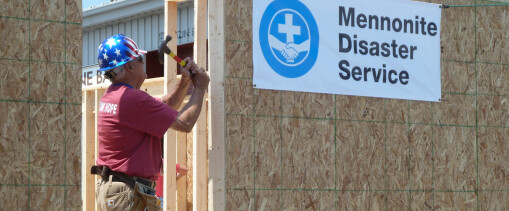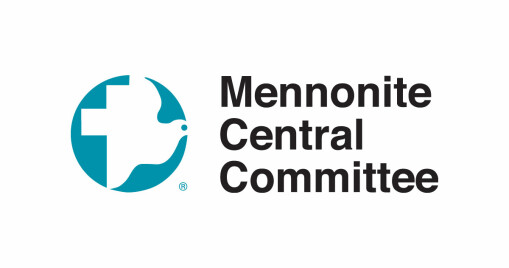Why, God?

Sep 14, 2017 | by Brad Sumner
I watched for her updates to come through on social media… “Leaving our home with the kids.” “Now taking shelter at my husband’s office; they have a back-up generator.” “Safe, but unsure if our home is still standing.” Our friends were caught up - along with millions of others - in the midst of Hurricane Irma.
When things happen in our world – be it natural catastrophes, typhoons, famine, or violence perpetuated against vulnerable people – most of us ask a very honest, very normal, very raw question: WHY. Why did this happen? And very often, that question is directed at God.
The writer of the book of Old Testament book of Lamentations wrestled with this and other good why questions – and doesn’t pull any punches! The author cries out to God (lamenting). Asking probing question after probing question…
- “Lord, don’t you see my misery? (Lamentations 1:9)
- “God, look at how despised I am!” (Lamentations 1:11)
- “Lord, see my anguish! My heart is broken and my soul despairs”. My groans are many and I am sick at heart.” (Lamentations 1:20)
From Genesis to Revelation, the Bible is filled with cries of anguish and questions. And the thing I appreciate is that God doesn’t denounce or deprecate the inquiry or the inquirer. Not only can He handle it, sometimes it almost seems that He encourages us to ask these kinds of WHY questions! 
You see, when bad things happen to us or those around us, at a very visceral level, we want to know why. As human beings, we are wired to want to make sense out of our world. We search for meaning in events and circumstances.
In the Biblical record, we see some foundational truths or some groundwork that has to be laid and understood before we even get to the question of “Why do bad things happen to good people?”
One significant part of that groundwork is the Christian doctrine of the fall. That way back at the start of Genesis, when humankind rebelled against, God, things went askew. This impacted not only our personal standing before God but also the very created order itself (see Romans 8:19-21).
In other words, the original design of the world is broken - all is not as God intended it to be – and this brokenness is inherited by the entire human race (see Genesis 1-3 & Matthew 5:45). The world we experience and the brokenness and suffering that we see in our lives and on the news are not part of God’s original design.
The other understanding that this helps to open up for us is to de-link suffering with sinful behavior. The individual sufferer is not necessarily receiving a due payment for specific wrong doings. Contrary to Kirk Cameron’s unhelpful video post, God is not vindictively punishing the people of Florida for their sins to teach them humility! We see this question addressed clearly in the gospel accounts when the disciples ask Jesus “who sinned, this man or his parents that he was born blind?” and Jesus says ‘neither!” (see John 9). As Christians, we don’t believe in karmic style justice.
But the Scriptures also don’t leave us there. The doctrine of the fall is paired with the doctrine of the incarnation and the death and resurrection and ultimate victory of Jesus Christ. God doesn’t simply set the world up and then abandon it or us… He enters the fray personally. In Christ, we see a God who suffers with us, who suffered for us and who calls us to be moved by His love to alleviate the suffering of others.
This compels us into the world to walk with those who are suffering to do justly, to love mercy and to walk humbly with our God. The Christian gospel gives us incredible resources to address not just the philosophical aspect of the existence of evil but also the emotional aspects of it. The notion that Jesus experienced suffering and death challenges our view of God and our view of the very nature of suffering and evil. It reminds us that God is not distant or uninterested in our experiences. Lamentations 3:55-57 says it this way: ““But I called on your name, Lord, from deep within the pit. You heard me when I cried… Yes, You came when I called; you told me ‘Do not fear.’” (Lam. 3:55-57).
So when earthquakes or hurricanes happen, it can be convenient and easy to blame God and ask “God, why didn’t you do something about that?” The reality is it’s never quite so simple. But what is simple is the invitation for each of us to do something about it. As Menno Simons said, “true evangelical faith, cannot lie dormant, it clothes the naked, it feeds the hungry, it comforts the sorrowful, it shelters the destitute, it serves those that harm it, it binds up that which is wounded, it has become all things to all creatures.” That includes innocent victims of fires, floods and hurricanes.
- Pastor Brad
In an upcoming post, we’ll examine some of the assumptions (some helpful, some unhelpful) that underlie the question “why do bad things happen to good people?”
Ways to Respond...
If you want to GIVE to a reputable organization that is committed to digging in and doing meaningful re-building work on the front lines of the disaster in Texas, consider donating to Mennonite Disaster Service. Check out their Sept 13 update here

If you want to GIVE to help provide disaster assistance to those in Haiti, Cuba, India or Nepal impacted by the flooding there, we recommend Mennonite Central Committee. Check out the latest updates here.
